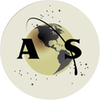
With a powerful rover on its way to the Red Planet, now is a good time to review a book about another Martian explorer – Phoenix. The Mars Phoenix Lander has long since gone quiet on the frigid, dusty plains of Mars. Its legacy however remains. It will go down as the first mission to land in the Martian Polar Regions, the first to be led primarily by a University.
The University of Arizona took the lead on the mission with Peter Smith being the Mars Phoenix lander’s Principle Investigator or “PI.” Andrew Kessler was brought onto the Phoenix team to help promote Phoenix to the public. It was a controversial decision.
The media, by-and-large tends to focus on accidents, explosions or other failures. Given that Phoenix accomplished its objectives with nary a wrinkle – it is not hard to understand why the media paid it little attention. One need only look at the lander’s cousin, the Mars Exploration Rover Opportunity – who has been largely forgotten by the press – despite the fact that it has been working on the red planet for the past seven years (even though it was only slated to last 90 days).
One of the things that no media outlet wants to see is one of their employees repeatedly make what are known as “fact errors.” These can be as large as gross misrepresentations, or in this case, as small as not knowing the correcting spelling or pronunciation of an individual’s name. When that someone as well-known as Keith Cowing (not “Cowling” as the author repeatedly states – even in the book’s index). Kessler could have easily verified the correct spelling by going to NASAWatch.com or by picking up a copy of New Moon Rising. Apparently he did neither.

The importance of this is simple. If he got something this simple to check wrong – what about the larger topics the book discusses? The author was sure to mention that his work has appeared on The Discovery Channel and The New York Times – one would think such respectable media outlets would ensure journalists made sure their work was free of fact-errors. Especially since a portion of the book is spent assailing the work of other journalists.
One might ask, “Why so harsh?” Simply put, Kessler has massive potential. His writing style is easy to read and is perfectly suited for the general public. Space exploration has unfortunately become the province of the elite – Kessler is a great writer and makes a complex subject accessible to all. He also makes it interesting, adding personal reflections and witticisms that other authors don’t.
In summation, Martian Summer provides a behind-the-scenes glimpse of what was going on during Kessler’s time with the Mars Phoenix Lander project. It highlights the difficulties involved with mastery numerous skills required to reach another world. More importantly? It opens the door to the sheer wonder of it all.
Martian Summer is published by Pegasus Books and it weighs in at 352 pages (with 16 of them filled with color images). It details how Phoenix rose up out of the ashes that was the Mars Polar Lander and would go on to discover an ocean of ice under the Martian North Pole. Phoenix was the first spacecraft to be imaged as it landed on the surface of another world. In all, it was an amazing mission that lasted some 90 Martian “sols” – but went on to work for 155 sols.
Kessler works to remind us of the magic of spaceflight and exploration in a manner we can all understand. If you want an accurate scientific description – you want find it here (Kessler says so himself in the Author’s Note). What you will find is a peek behind the curtain at what makes a mission to Mars work – in all of its quirky glory.



